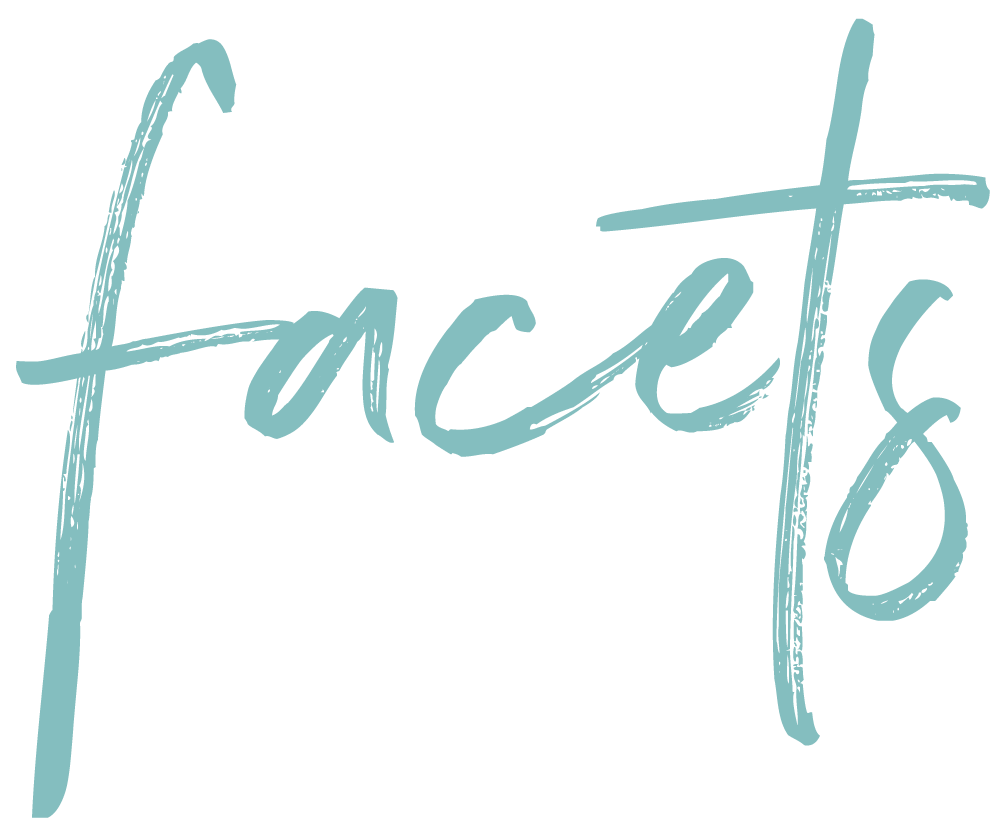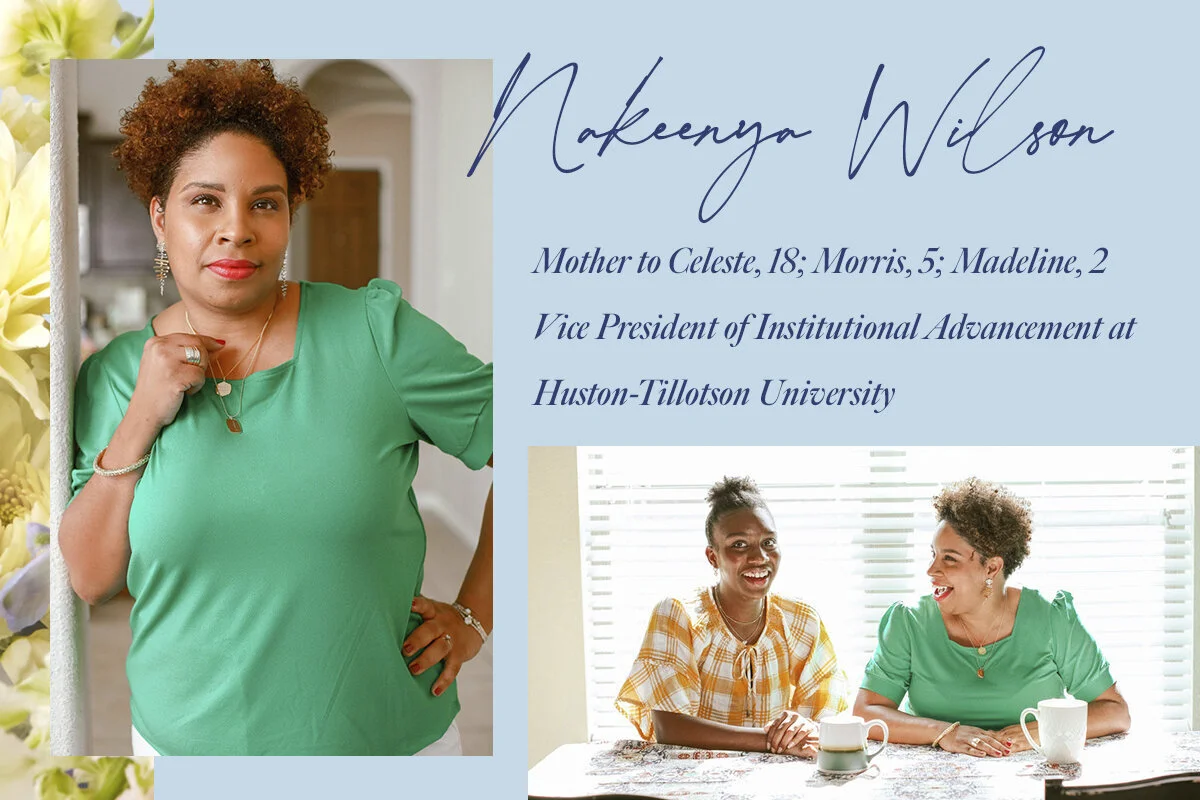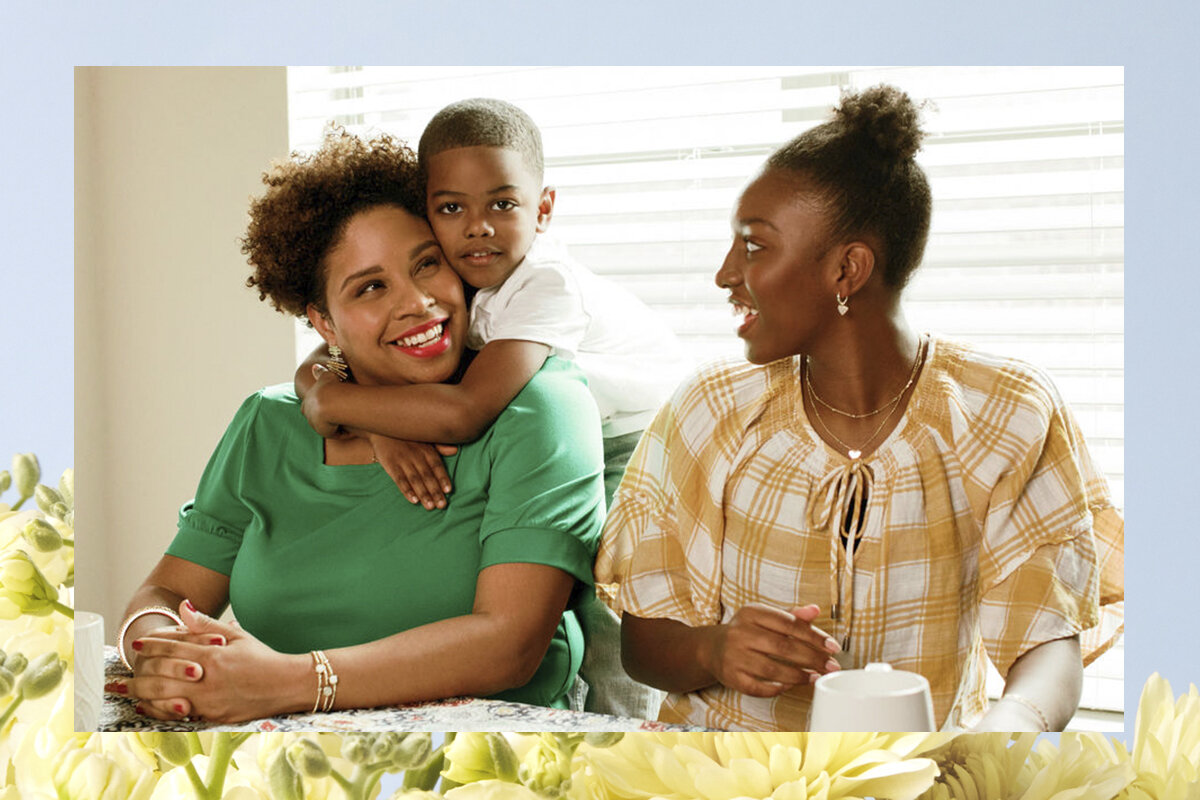To Mom, From Mom: Meet Nakeenya Wilson
We bring everything we are into our roles as moms — our strengths, our challenges, our vulnerabilities. This Mother’s Day, we talked with a few of our favorite moms about their own mental health journeys, stories that we hope will inspire you as you navigate your own.
How did becoming a mother change you?
The one thing that I gained from being a mom is this enduring patience because the love that you have for your children stretches you further than you ever thought you’d be able to go.
If you could make one wish for your child/children that you know could come true, what would that be?
There’s a song by Regina Bell... It’s called “If I Could”, which talks about shielding you from all of the harms and the hurts in life and helping protect you, and ensuring that you have a beautiful life. So, for me, if I could — and I know it’s not fully possible — if I could help to mitigate the amount of heartache and the amount of pain that they experience, I would. I definitely think as an African American mother I have an even greater hope that the world that they are growing up in will continue to be more kind and just, and that they are seen fully for who they are and all of their gifts.
How do you take care of yourself/show yourself love as a mother?
I think I developed postpartum depression with my four-year-old, but I wasn’t quite sure that was what it was. I never had scary thoughts or thoughts of self-harm, but I was constantly overwhelmed. Getting out of the house and going to the store seemed like a monumental task so I sequestered myself in the house a lot, but I’m an extrovert, so it perpetuated this unhealthy space that I was in mentally. And then when I had my daughter a few years later, I was about five months postpartum and working in the realm of Black maternal health, and it clicked to me one day that I’m not okay.
I found myself being impatient and I was easily frustrated, I had a hard time sleeping. I called an organization in town called PPHA, Postpartum Health Alliance, and I connected with someone there...They connected me to a psychiatrist and to a therapist that was specific to prenatal and postpartum clients and it was life-changing. I started taking some medication and it was like a fog lifted, and so it’s been something that I’ve chosen to speak very openly about — to release women from the shame of it because there’s no shame in it. It’s a biological response to pregnancy, and specifically for African American women, it can be as many as one in seven women that are experiencing postpartum depression.
It didn’t go away all at once. With medication and modifying my treatment plan, it took almost two years for me to really get back fully. I try to share that with moms – just be patient with yourself. Therapy is self-care...I have a regular and frequent relationship with my therapist, and that has been amazing in helping me with my mental health and wellness.
In your words, why is it so important to remove the stigma around mental health, especially for mothers?
I think it’s important to remove the stigma so that they will feel free to get the help that they need. It’s also very important that their partners have a better understanding to be more supportive, because when Mom is healthy and well, then the entire family thrives, and their communities and their workplaces. We bring so much to every space that we’re in as women. When we are well, everything goes better.



